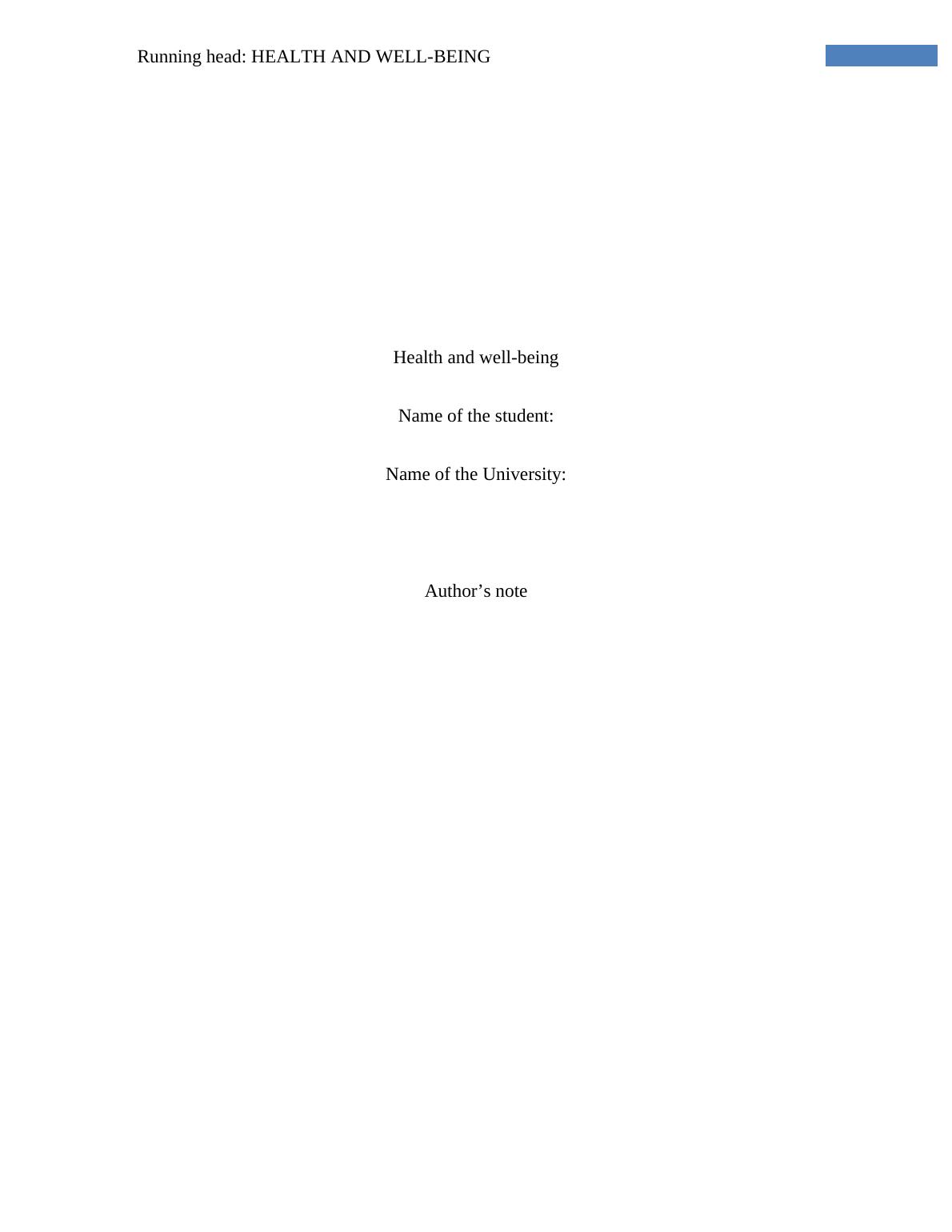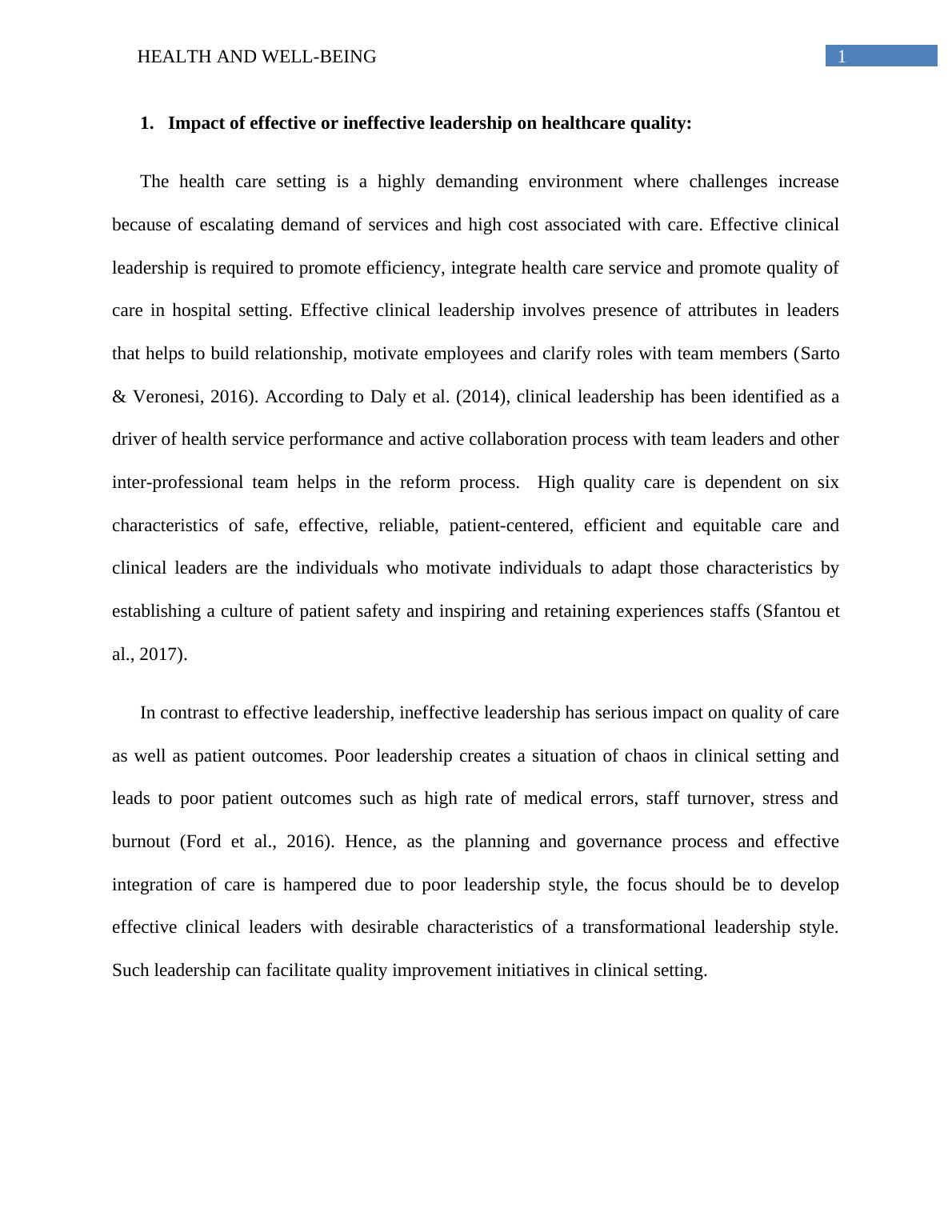Impact of Effective Leadership on Healthcare Quality and Interdisciplinary Collaboration in Health Care
To analyze the impact of effective or ineffective leadership on healthcare quality and its implications.
4 Pages888 Words500 Views
Added on 2022-11-14
About This Document
This article discusses the impact of effective or ineffective leadership on healthcare quality and the effect of interdisciplinary collaboration on quality and cost effectiveness in health care.
Impact of Effective Leadership on Healthcare Quality and Interdisciplinary Collaboration in Health Care
To analyze the impact of effective or ineffective leadership on healthcare quality and its implications.
Added on 2022-11-14
ShareRelated Documents
End of preview
Want to access all the pages? Upload your documents or become a member.
HSH725 Research Literacy for Health Practice- Essay
|9
|2861
|320
HNN320 Leadership and Clinical Governance
|15
|4063
|31
Cochrane Database of The Systematic Review
|10
|2695
|16
Leadership and Clinical Governance: Impact of Effective Communication on Patient Safety
|10
|2425
|406
Communication in Nursing Practice Case Study 2022
|7
|1633
|31
Importance of Interprofessional Collaboration in Nursing Practice
|8
|1842
|145


